Frontier Markets Weekly, April 10th 2022
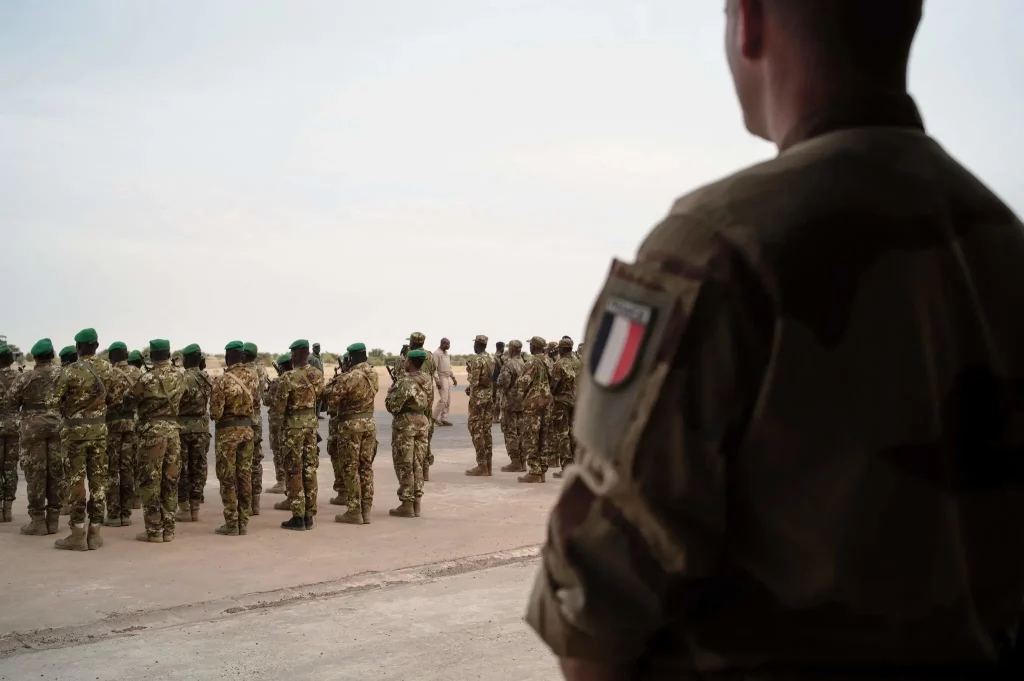
Welcome to the latest edition of Frontier Markets News. As always, I would love to hear from you at dan@frontiermarkets.co with news ideas, feedback and anything else you find interesting.
If you’d like to receive this newsletter in your inbox every weekend, sign up at FrontierMarkets.co. Please also share this link with any friends or colleagues you think would enjoy it.
Africa
Military Massacre in Mali. Between 200 and 400 people were killed in the central Malian town of Moura last week. According to the US State Department the killings were perpetrated by the country’s military, and likely in conjunction with Russian mercenaries.
Human Rights Watch described the massacre as “the worst atrocity in Mali’s decadelong armed conflict.” Malian forces and Russian mercenaries held the town for four days, and soldiers opened fire on civilians at the town’s livestock market, the New York Times reports. The Malian military said it had killed 203 fighters for armed terrorist groups and arrested 51 more, but did not specify civilian or military casualties.

Mali’s military has been battling insurgent groups for the past decade. French troops initially backed it, but pulled out after the second of two military coups in the past two years and an influx of armed Russians affiliated with the paramilitary organization Wagner Group. —Noah Berman
Thousands rally against coup in Khartoum. On the anniversary of the protests that helped unseat Sudan’s former autocratic leader Omar Al-Bashir, thousands again took to the street to protest last year’s military coup that derailed Sudan’s democratic ambitions.
This year’s protests seemed unlikely to have the same effect, as military-aligned factions announced a deal to form a transitional government that would cement the military’s control and cut out the pro-democracy groups with whom they shared power following the ouster of Al-Bashir, Reuters reports.
The country’s crumbling economy, alongside the motivated protest movement, has put pressure on the military to find a political solution. Prices of food, fuel and commodities have surged in Sudan amid the backdrop of inflation, the war in Ukraine, and significantly decreased western aid following the coup, Agence France-Presse reports. —Noah Berman
Asia
Sri Lanka blocks social media amid protests. Sri Lanka’s President Gotabaya Rajapaksa announced the restriction of social media platforms last week, a worrying sign for the country’s functional, if imperfect, democracy. Most restrictions were lifted after 16 hours.
The censorship came soon after the government announced a curfew designed to quell massive street protests in the capital of Colombo, and may be seen as an attempt to prevent demonstrations from moving online. As a method of squashing dissent, the curfew was largely ineffective, as thousands of protestors violated its order to swarm one of the residences of Prime Minister—and brother of the president—Mahinda Rajapaksa in the outskirts of Colombo.
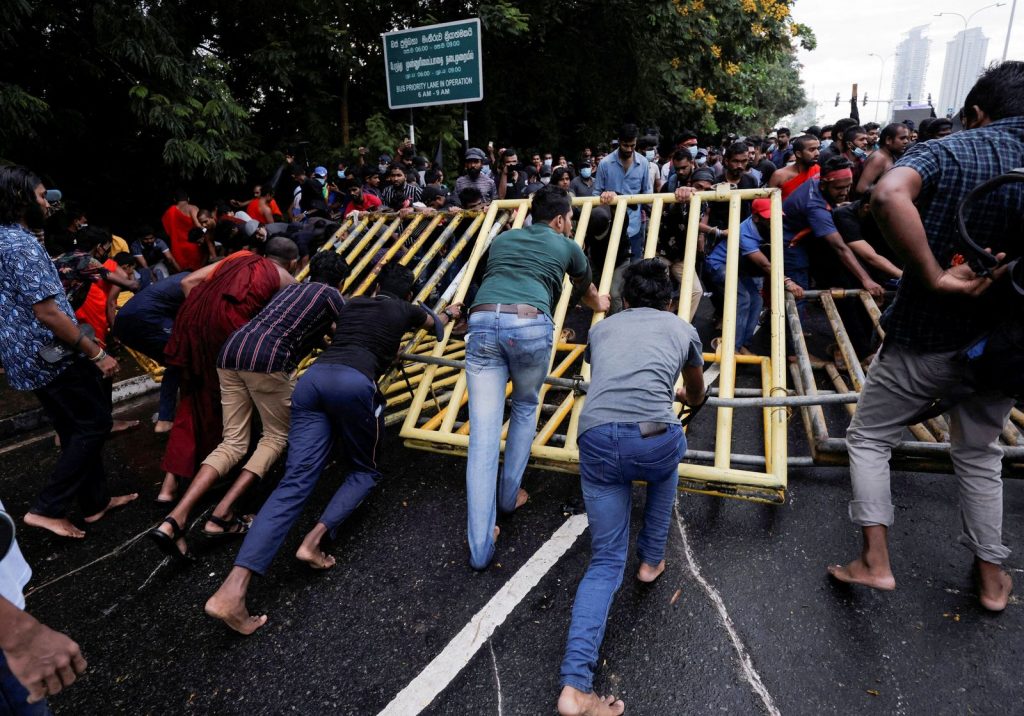
Protests continued in the face of the resignation of the entirety of the country’s cabinet except for its president and prime minister. The resignations included finance minister Basil Rajapaksa—the prime minister’s brother—and potential presidential successor and minister of youth and sports Namal Rajapaksa—the prime minister’s son.
At least 24 Asian countries have at one time restricted social media usage since 2015, and Sri Lanka became the 11th to do so directly in response to protests, according to data from cybersecurity firm Surfshark. Protests were the cause of 37% of social media shutdowns, Surfshark said.
The decision to ban social media was criticized by some in the country’s familial government. Namal Rajapaksa wrote on Twitter that the ban was “completely useless.”
Last Monday, Colombo’s stock market stopped trading after the benchmark share price index tumbled. The country’s foreign currency reserves are rapidly depleting as the due dates for its debt payments approach and its debt crisis comes to a head. The value of the rupee has decreased by 33% relative to the dollar this year. —Noah Berman
Pakistan’s Prime Minister Imran Khan ousted. Pakistan’s National Assembly on Saturday voted to remove Prime Minister Imran Khan after the Supreme Court in Islamabad on Thursday ruled that Khan’s prior decision to dissolve parliament was unconstitutional. A vote of no confidence motion passed with 174 votes, barely cresting the simple majority threshold of 172.
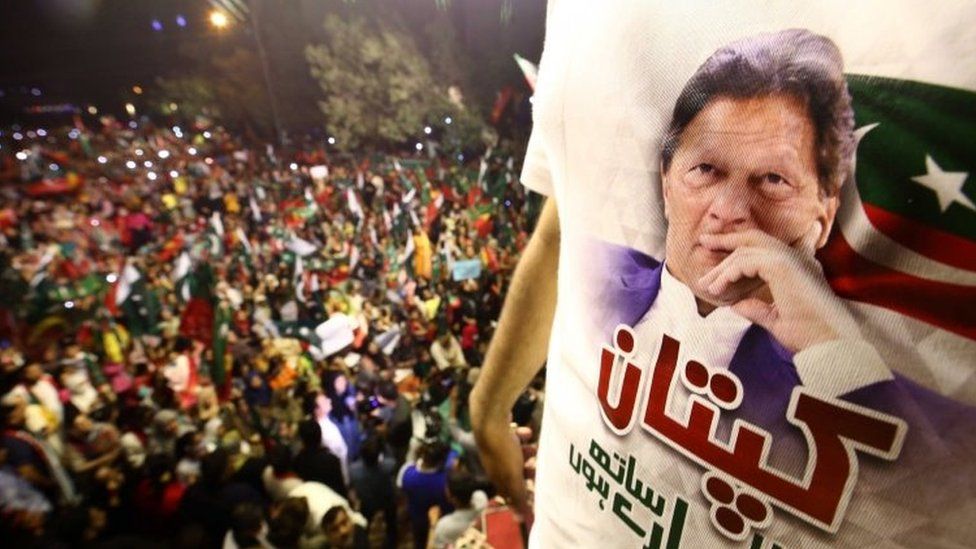
Khan has argued that the opposition’s attempt to remove him is a US-led conspiracy but has not provided evidence to support the accusation. Under Khan’s leadership, Pakistan has drifted closer to Russia and China and further from the West.
Attempting to dissolve parliament was “nothing short of high treason,” opposition leader Shehbaz Sharif wrote on Twitter. “There will be consequences for blatant and brazen violation of the Constitution,” he wrote. Analysts expect Sharif to take over as interim prime minister until general elections are held in October. —Noah Berman
Middle East
Dubai emerges as a regional crypto hub but triggers concerns. Cryptocurrency companies have flocked to Dubai recently after the UAE began making virtual-asset licenses widely available, the FT reports. Dubai’s efforts to make the emirate a global hub for digital currency innovation have seen quick results, with FTX Europe establishing a regional headquarters, Crypto.com opening a Middle East office, and exchange BitOasis receiving a provisional license last week. Crypto exchange Binance was granted a virtual-asset license in mid-March.
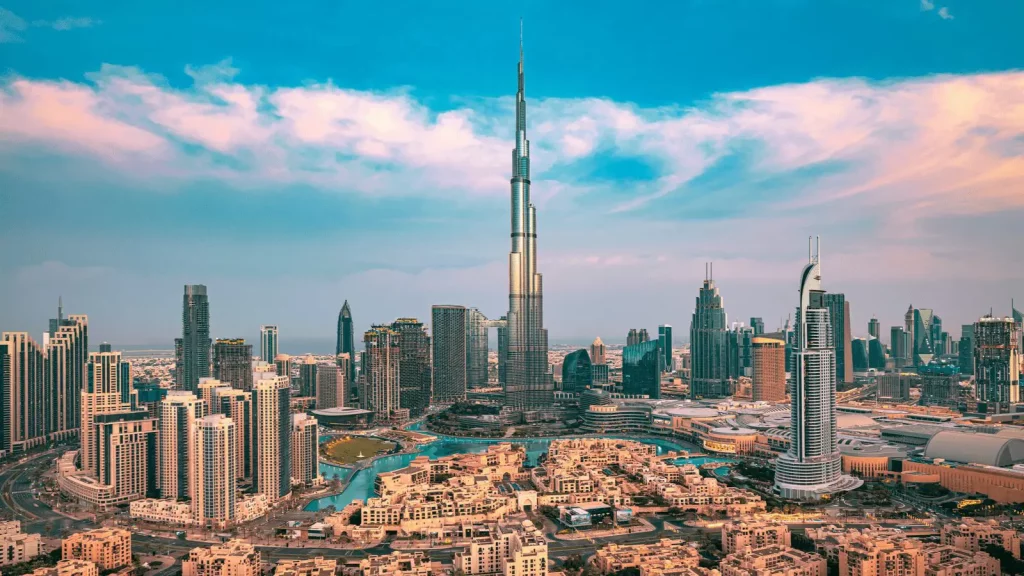
The influx of companies comes as enthusiasm for Singapore as a crypto hub has waned in recent months. Singapore had been viewed as a budding crypto hub in Asia after China cracked down on digital assets last year. Now, the crypto caravan has moved on as some companies turn their sights to a more receptive regulatory regime in the Gulf.
Some are concerned, though, that Dubai’s crypto-friendly environment could increase the potential for financial crime. The UAE has been added to the Financial Action Task Force’s “grey list” of potential money laundering enablers. Additionally, while the UAE’s recent successes create an early lead, the Gulf state is only the latest jurisdiction to try and attract a rapidly expanding industry and there is no doubt more competition from the likes of the UK, Switzerland, and Malta is to come. —Ken Stibler
Yemen’s president cedes power amid international efforts to end civil war.Yemen’s president handed over his powers to a leadership council on Thursday in a Saudi-backed move aimed at reviving negotiations with the Houthi rebels to end the country’s seven-year civil war, Stephen Kalin reports in the WSJ. President Abed Rabbo Mansour Hadi also dismissed his vice president before leaving his own position.
Both men were seen as obstacles by the Iran-allied Houthis and some of Saudi Arabia’s coalition partners to United Nations-led efforts to find a diplomatic solution to the conflict, which the international body says has caused the world’s worst humanitarian crisis.
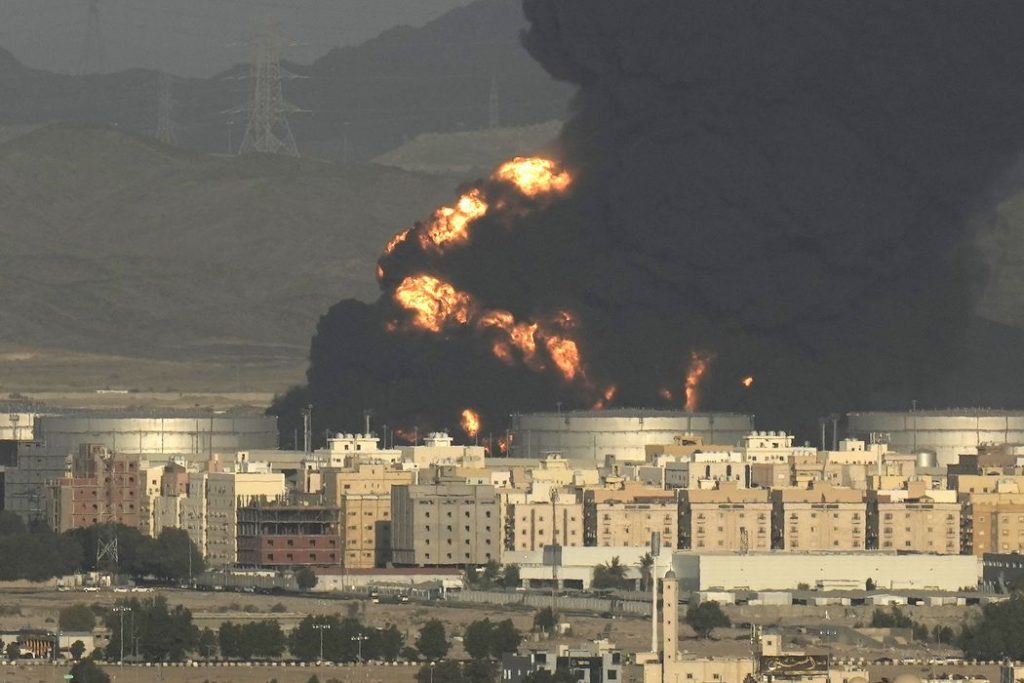
In a series of stage-managed moves early on Thursday, Saudi Arabia endorsed Yemen’s new leadership, urged the start of peace talks and released a video of Crown Prince Mohammed bin Salman receiving the eight-man council at his palace in Riyadh. The fighting has devastated Yemen—sparking famine and a cholera outbreak and killing tens of thousands of civilians, including from errant coalition airstrikes. —Ken Stibler
Europe
Battered Turkish economy gets a lifeline from Russian capital flight. After a currency crisis of President Recep Tayyip Erdogen’s own making, the Turkish economy has continued to be hurt by its low hard-currency reserves, an underperforming lira and a fragile financial system. The conflict in Ukraine and the subsequent rise in the cost of energy imports have only exacerbated these problems, with inflation hitting a 20-year high of 61%.
However, a silver lining has emerged for the beleaguered economy as Russian money flows into Turkey, the WSJ’s Jared Malsin and Elvan Kivilcim report. Despite its military and diplomatic support for NATO, Turkey has become a key haven for Russian money avoiding Western sanctions and Russian capital controls. And the government has affirmed its policy of accepting inflows from oligarchs and other wealthy Russians.
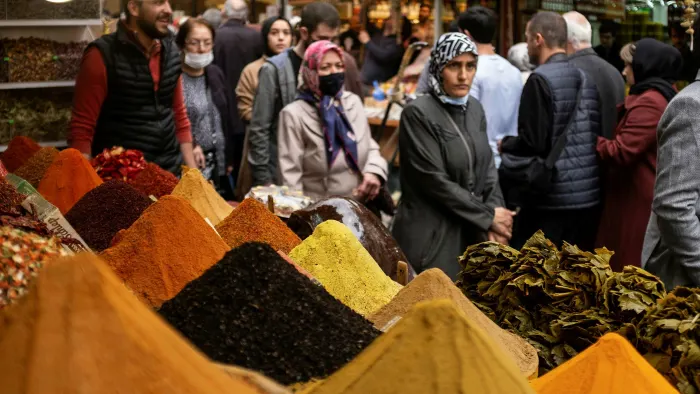
Cash transfer services, cryptocurrencies, real estate-based citizenship-through-investment programs, and briefcases full of cash have become increasingly popular methods for the Russian money to find its way into the Turkish financial system. Early data suggests that such flows may already be reinforcing the financial system: In just a couple of days in March, Turkey’s central bank took in about $3 billion from swaps with domestic banks heavily composed of Russian deposits. —Ken Stibler
Latin America
After record-low turnout, Costa Ricans elect controversial former World Bank official as president. A slim majority of Costa Rican voters elected former World Bank official Rodrigo Chaves this week as president amid rising discontent about economic stability and corruption, the WSJ’s Santiago Perez reports. The former finance minister received around 53% of votes with a record low turnout. Meanwhile, his newly formed party won only 10 of the 57 congressional seats.
Without a strong mandate, Chaves, briefly the minister of treasury for the departing president, must now tackle Costa Rica’s 15% unemployment rate, a tourism sector severely depleted by the pandemic, and rising debt levels. Such conditions forced his predecessor into an unpopular $1.8 billion funding agreement with the IMF that requires deficit reduction and increased taxes to address debt that has more than doubled since 2013 to 70% of GDP.

During the campaign Chaves promised to maintain good relations with the IMF while fostering growth through foreign direct investment, state modernization, and prioritizing business entrepreneurship. However, Chaves is banned from IMF or World Bank offices after being accused of sexual harassment by several women at the bank. —Ken Stibler
Fuel prices prompt massive protests and government concessions in Peru. Peru saw a wave of violent protests this week as the price of fertilizer, fuel and foodstuffs has skyrocketed. What started as strikes by farmers and truckers ballooned into large anti-government protests. In response to increasing street violence and property destruction, President Castillo declared a state of emergency, announced curfews, and deployed the army—to little effect, CNN reported.
As the protestors’ numbers have grown, roadblocks and clashes with police have disrupted exports and created temporary food shortages in Lima. Facing a rapidly declining situation on the heels of a second attempt by rivals to impeach him, Castillo apologized, later glibly saying, “Peru is not going through a good moment.”
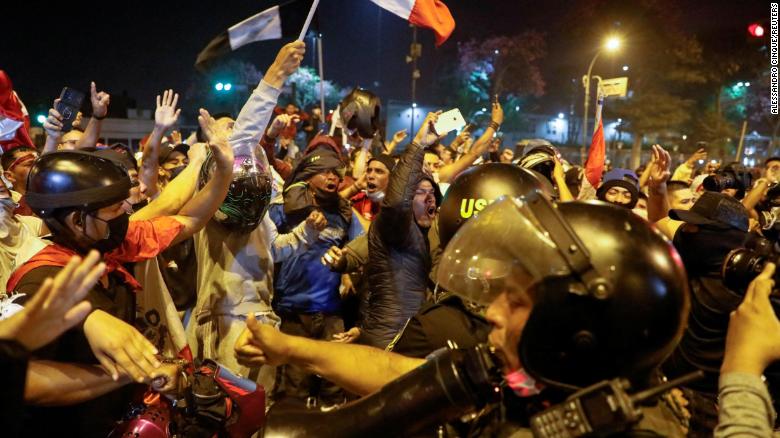
The administration has since changed its approach, lowering fuel taxes by 90%, exempting basic foodstuffs from sales tax, and increasing the minimum wage by 10%. While such moves are intended to help Peruvians struggling with the fastest inflation in 24 years, reduced government revenue and higher wages only stand to exacerbate the problem in the medium term. The central bank also raised its key interest rate 50 basis points on Thursday to try and tackle inflation that experts worry is still outpacing Peru’s aggressive monetary policy. —Ken Stibler
What we’re reading
In Africa, US-trained militaries are ousting civilian governments in coups. (WSJ)
Nigeria to bar 75 million phone lines in bid to stop kidnappings. (Bloomberg)
Bankman-Fried’s crypto exchange FTX to launch in West Africa. (Bloomberg)
Italy lines up gas deal with Algeria in effort to cut dependence on Russia. (FT)
Egypt: Cairo strengthens its influence in East Africa against Ethiopia. (The Africa Report)
Despite risk of death, Thailand sends Myanmar refugees back. (AP)
China pledges support for Myanmar’s junta, ‘no matter how the situation changes.’ (The Diplomat)
Laos’ logistics vision for ASEAN: All rails lead to Vientiane. (Nikkei)
Tensions with North rise as South Korea’s president-elect takes tougher line. (WSJ)
Saudi and Kuwait to return envoys to Lebanon after Yemen rift. (Bloomberg)
Kuwait’s government resigns as political crisis intensifies. (AP)
Leader of Romanian Liberal Party resigns after six months in office. (WSJ)
US stops Russian bond payments, raising risk of default. (Reuters)
Russian tech spending declines as sanctions take toll. (WSJ)
Czech municipalities, whose money is frozen in Russian bank, ask state for help. (Radio Prague International)
Ukraine war threatens food security in western Balkans. (BalkanInsight)
Hungary willing to pay for Russian gas in roubles, says Viktor Orban. (FT)
Western partners stump up aid package for Moldova. (BalkanInsight)
El Salvador leader says he’ll cut all food for gang inmates. (AP)
Massive investments in Guyana’s oil and gas industry by Exxon-Mobil. (MercoPress)
Gas deal between Bolivia and Argentina signed. (MercoPress)


